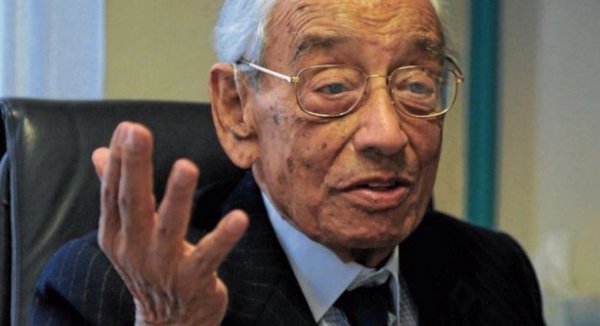The
market capitalisation (equities only) of the Nigerian stock market has shed a
total of N2.354tn in the past year.
The
Nigerian Stock Exchange, in its fourth quarter 2014 Fact Sheet, put the market
capitalisation at N11.478tn; but at the end of trading on Friday, it stood at
N9.124tn.
This,
therefore, represents a 20.5 per cent drop in the stock market value.
The
market had been on a decline for the greater part of this year due to various
factors.
In
January alone, the renewed dumping of shares by investors at the stock market
over uncertainty in the political landscape led to a dip of N1.16tn in the
market capitalisation of the Exchange in the first three trading days of the
year.
Trading
on the NSE in 2014 had closed with a decline of 16.1 per cent in the market
capitalisation, which resulted in the stock market opening 2015 on a bearish
note.
The
NSE All Share Index, which stood at an average 34,657.15 points in the last
quarter of 2014, has fallen to 26,537.36 so far this year, according to NSE
statistics released on Friday. This represents a drop of 23.4 per cent.
This
trend has further shattered the dreams of the Exchange to stabilise and further
grow the market capitalisation.
The
Chief Executive Officer of the NSE, Mr. Oscar Onyema, had in the early part of
this year said that his self-imposed target of achieving $1tn (about N197tn)
market capitalisation by 2016 was no longer feasible.
Onyema,
while speaking at the NSE annual review of the market in 2014 and outlook for
2015, had said that last year started on a positive note with macroeconomic
indicators such as inflation and the exchange rate staying within projected
ranges.
The
second quarter of 2014, he noted, kicked off on a high note following the
nation’s Gross Domestic Product rebasing conducted by the National Bureau of
Statistics.
The
results of the rebasing did not only confirm Nigeria as the largest economy in
Africa with a GDP of N80.22tn ($509.97bn), but also revealed the nation to be
one of the least leveraged in the world, with a revised debt-to-GDP ratio of 11
per cent, from 20 per cent.
Onyema
had attributed the woes of the market from the second quarter of 2014 to the
falling oil prices in the international market, saying that the challenges in
the Nigerian oil and gas sector, which resulted in crude oil production
dropping below 2.3 million barrels per day, aggravated the problem.
He
said, “The impact of this drop in production was exacerbated in the third
quarter by crude oil prices plummeting, forcing the Central Bank of Nigeria to
devalue the naira by eight per cent, and thus push the benchmark interest rate
to a record 13 per cent in an effort to preserve the nation’s foreign reserves,
which stood at $34.50bn on December 30, 2014, from $43.61bn at the start of the
year.
“The
bearish sentiments at the capital market prevailed for most of the year as
foreign investors steadily withdrew from the Nigerian market due to currency
risk and the recovery of developed economies, and the effects of the United
States Federal Reserve tapering of its quantitative easing policy. Several
macroeconomic developments also contributed to the decline in market
performance.”
The
poor start to 2015 was worsened by strong political concerns and increased
uncertainties about the future of the country in the build-up to the general
elections. These, together with the economic uncertainties, caused more foreign
investors, who dominate the market, to dump their shares.
Institutional
domestic investors such as the Pension Fund Administrators, spooked by the
uncertainties, reduced investment in the stock market in favour of fixed income
instruments such as bonds, while the retail investors were unable to mop up the
stocks in the market even though the prices were at lows.
Although
the peaceful conduct of the general elections boosted the market capitalisation
and the All-Share Index to a year high in April, the delay in the appointment
of ministers and consequent lack of clarity about the economic policy of the
new government further discouraged investment.
The
country’s declining Gross Domestic Product growth and actions of the Central
Bank of Nigeria in the third quarter of the year, especially with regard to
foreign exchange, did not help matters.
The
Head Investment Research at Afrinvest West Africa Limited, Mr. Ayodeji Ebo,
attributed the capital market woes in recent times to the CBN foreign exchange
policy, which he noted was largely restrictive.
Quoted
companies on the NSE, according to him, are being starved of the requisite
forex needed for effective business operations.
Ebo
said further adherence to the policy by the CBN would mean more harm for the
capital market and the larger domestic business environment.
The
NSE All Share Index had slid more than 21 per cent from this year’s closing
high on April 2, meeting the common definition of a bear market. The index
slipped by 2.3 per cent to 28,137.65 points at that date, the lowest level
since February 16.
On
December 9 this year, the stocks shed 2.4 per cent to fall to a new three-year
low after the global oil prices tumbled to their lowest in more than six years.
The
Nigerian stock market, on the Morgan Stanley Capital International Frontier
Market Index, fell on thin volumes to levels not seen since December 2012. The
market was said to have fallen by 20.6 per cent year-to-date, breaking below
the psychologically key 27,000-point line.
It
has been a generally poor year as all 12 stock market indices have declined.
Eight of them were down by more than 20 per cent, with only three – the NSE
Insurance Index (-4.48 per cent), the NSE Industrial Goods Index (-7.14 per
cent) and the NSE Alternative Securities Market Index (-0.39 per cent) –
falling by less than 10 per cent.
Banking
shares have declined the most, with the NSE Banking Index shedding 24.4 per
cent year-to-date, worse than the All-Share Index, as investors sold off
relatively liquid financial stocks.
Analysts
have said only clear policies by the government and positive news about the
economy can boost confidence in the market and halt the current slide.
The
Managing Director, Cowry Asset Management Limited, Mr. Johnson Chukwu, said
recently that investors were more interested in concrete policy pronouncements
on the economic direction of the country.
























